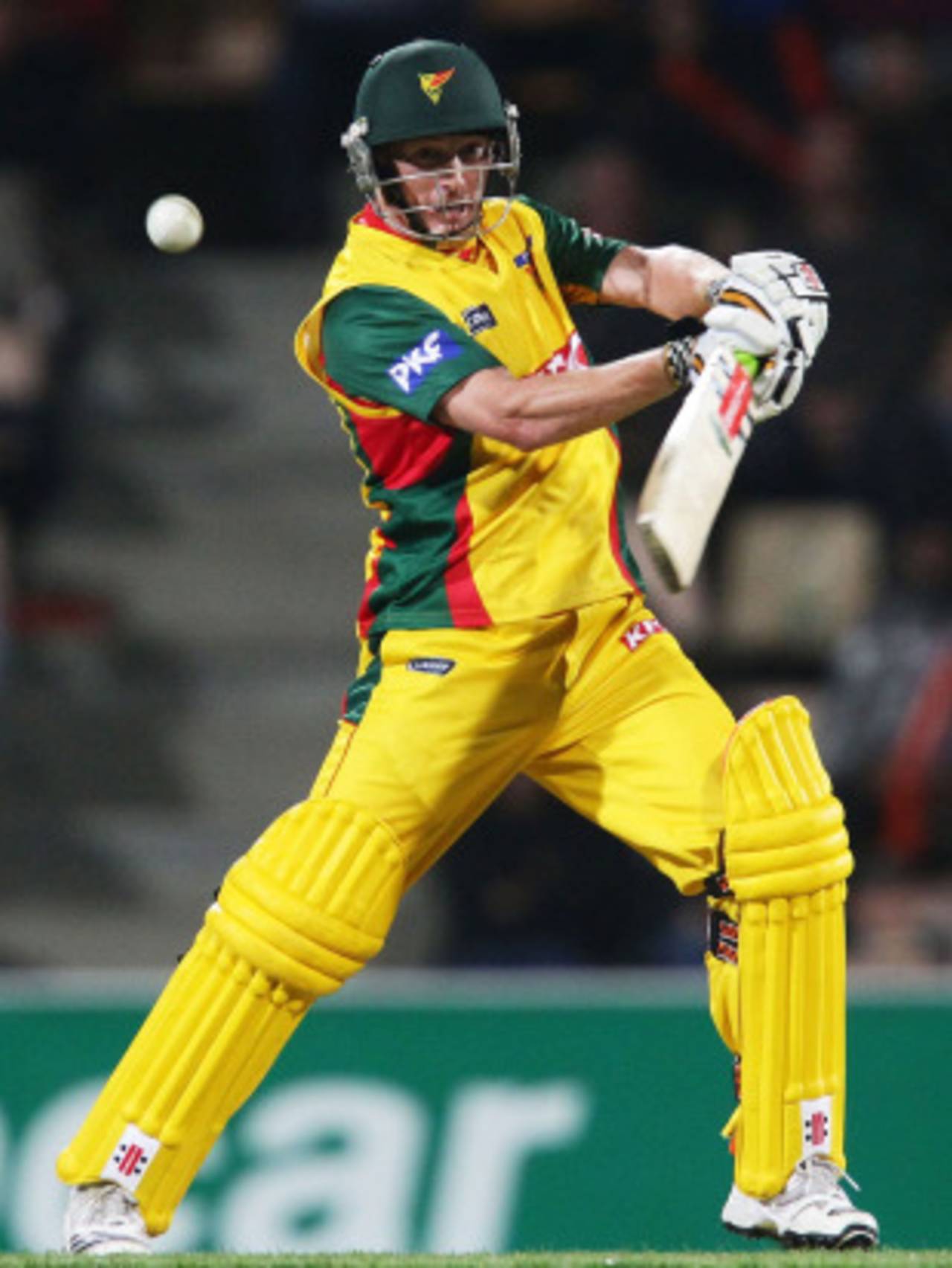Captain first, batsman second
George Bailey would not command a place in Australia's T20 side on form alone, but he still has plenty to offer
Brydon Coverdale
Jan 23, 2012, 9:09 AM

George Bailey is a good enough player to have once made an Australia ODI squad, but his captaincy credentials won him his new role as Australia's T20 leader • Getty Images
A few weeks ago, hundreds of Australian and Indian cricket fans headed to Melbourne's Southbank for a public appearance by the players ahead of the Boxing Day Test. Some wore their team shirts, others carried paraphernalia to be signed. Most were serious cricket followers. As a few groups crossed the Yarra River on the St Kilda Road footpath to go and meet their idols, they took no notice of George Bailey, who was out for a stroll on a day off from Big Bash League duties.
Nobody stopped him to ask for an autograph. No one prodded their mate and said "Hey, that's George Bailey!" It appeared that this correspondent was the only person within cooee who recognised him. That will change next week, when Bailey leads Australia in a Twenty20 against India and becomes the first man since Dave Gregory in Test match No.1 in 1877 to be named captain in his first match for Australia in any format.
It is an extraordinary rise, and one that has not come because of compelling form: Bailey has scored just one T20 half-century in his past three summers. But the new selection panel headed by John Inverarity rates Bailey highly as a captain, and it is for his leadership and tactical nous that he has been handed control of Australia's T20 outfit as they build towards September's ICC World Twenty20.
It was telling that in the press release outlining Bailey's appointment, Inverarity noted that the role of the captain was especially important in the shortest format, where meticulous preparation needed to be accompanied by calm split-second decision-making. "A captain can have a most significant impact on a game," Inverarity said, "even if he does not bowl or get to the crease".
The message was clear: captaincy skills are just as important as batting or bowling form for a T20 leader, if not more so. The juggling of bowlers, the setting of fields, the reading of play - these are factors that arguably become more important the shorter the format.
That being the case, it could be argued that the incumbent leader, Cameron White, might have been retained despite his dismal BBL form. White has been captain of Victoria for a decade and in that time the Bushrangers have won four Big Bash titles.
But his appointment as Australia's captain was a legacy of the Andrew Hilditch era. Inverarity's panel prefer Bailey. That's their prerogative. You don't move into a new house and keep the furniture where it was just because the previous owners had it there.
The panel's options were few. Shane Watson is the Test vice-captain but is not fit. In any case, managing himself as an allrounder in three formats is enough of a burden without asking him to direct the side on the field. David Warner, vice-captain to Bailey, is an option in the long term, but he is only just beginning to learn about leadership.
David Hussey has led Victoria on and off during White's absences, but he is more of a lead-by-example captain. Once while standing in as the state skipper in a one-day match he was asked at the toss who was in his side and he admitted he hadn't even checked the team sheet to find out.
Bailey has the captaincy record to do the job. He has steered Tasmania to a Sheffield Shield and a one-day title in the past two years. He is regarded by his peers as an astute leader and tactician. He is a good enough batsman to have made an Australia ODI squad in 2010, and is a more aggressive, muscular strokeplayer than Michael Clarke, who was a clever T20 captain but lacked the power to be a forceful batsman in the format.
He has much to offer, and giving him this opportunity was a brave, bold move by the selectors. Maybe it will work, maybe it won't, but something had to be done to revive Australia's T20 fortunes. They are ranked fifth in the world and have won only two matches since making the final of the World Twenty20 in 2010. They have four, maybe five games before the title is again up for grabs. It is just enough time for a new group to settle in.
While the new squad does just that, White will be left to wonder where his career is heading. He started as a legspinner who could bat, and has ended up as a batsman who hardly bowls. He has spent time in the Test, ODI and T20 international teams, and now finds himself in none of them. He has time, but perhaps not Inverarity's panel, on his side. For now, all he can do is pile up the runs with Victoria.
In Bangladesh in April, when White was dropped from Australia's ODI side, he and Hilditch were spotted out on the field, the last two men standing at a training session as the outgoing selector hit catches to the outgoing player. Their fates have turned out to be more closely aligned than anyone knew.
Brydon Coverdale is an assistant editor at ESPNcricinfo. He tweets here